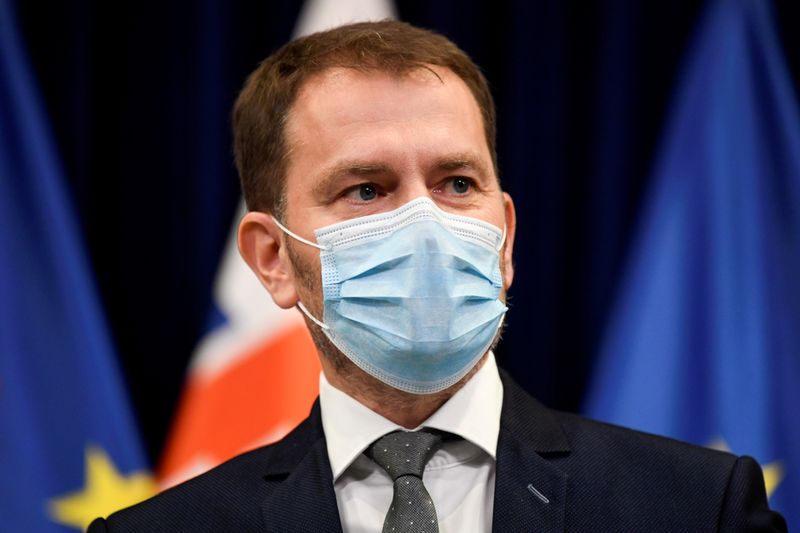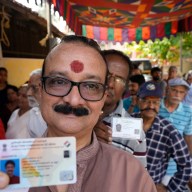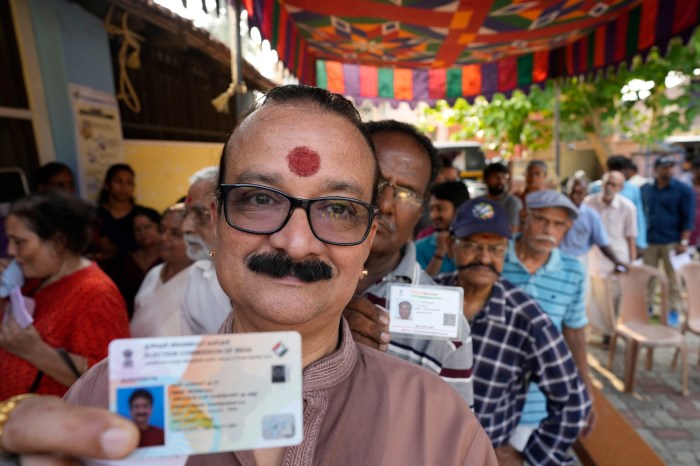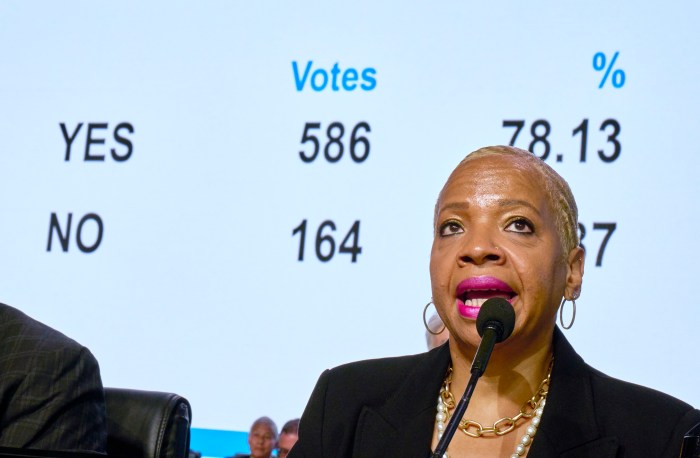BRATISLAVA (Reuters) – Slovakia’s prime minister said on Monday he hoped his compatriots would be able to “live freely again” in about two weeks as daily increases in new coronavirus cases have remained mostly in single digits since late April.
Igor Matovic, who has previously struck a very cautious tone on lifting lockdown restrictions, said shopping malls, cinemas and theatres would reopen on Wednesday and public events with up to 100 people would be allowed under strict hygiene conditions.
Slovakia imposed a tough lockdown early in the crisis, before it had reported any new coronavirus cases. As of Sunday, it had reported 1,495 cases and 28 deaths, among the lowest per-capita figures in the EU. It recorded one new case on Sunday.
“Our common responsibility has enabled this biggest easing (of restrictions) and I hope that in a fortnight we will be able to announce that we can live freely again,” Matovic told a news conference.
Slovaks will be able to travel freely for up to 24 hours to eight other European states from Thursday without having to present a negative coronavirus test or facing a two-week quarantine upon return, Matovic said.
The eight countries are Germany, the Czech Republic, Austria, Poland, Hungary, Croatia, Switzerland and Slovenia.
Wearing face masks outside will no longer be obligatory from Wednesday but people must remain five metres apart. Masks, which Slovakia was among the first European nations to require, will remain compulsory in indoor areas such as shops and offices.
Slovakia will reopen kindergartens and the first five grades of primary school from June 1, with participation on a voluntary basis, Matovic said.
Commenting on the low death toll, Alexandra Brazinova, an epidemiologist from the Faculty of Medicine at Comenius University, said Slovakia had learned from the mistakes of others and had also started testing early on in care homes.
“Many countries introduced (all of) these measures, too, but later, when the disease had spread in the population,” she said.
The launch of phone applications should help combat any new wave of the virus, and “perhaps with fewer restrictions for the public” than this time, Brazinova added.
The lockdown has taken a heavy toll on Slovakia’s economy, which the central bank expects to shrink by 9% this year.
(Reporting by Tomas Mrva; Writing by Jan Lopatka; Editing by Gareth Jones)



















